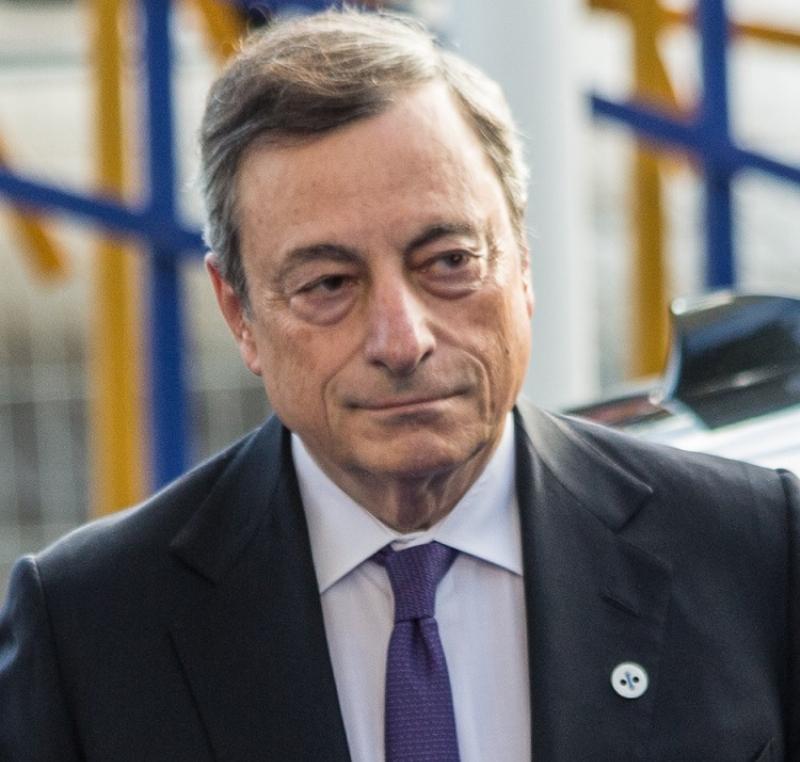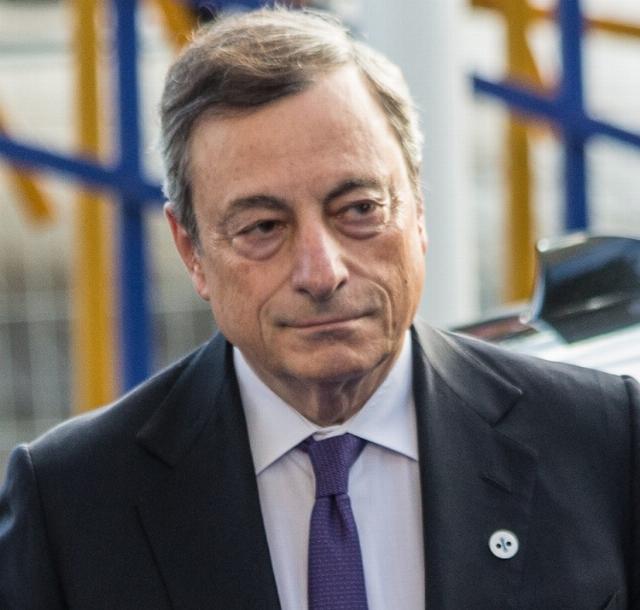


Looking at the emaciated EU economy, Commission President Ursula von der Leyen calls for a push to restore competitiveness. What never crosses her mind is that it is precisely the ecosocialist agenda of her own administration that now threatens the very economic survival of the Union.
Every narrative needs its hero. In the fairy tale of a prosperous and expanding European Union, Mario Draghi -- once president of the European Central Bank and later unelected, technocratic prime minister of Italy -- was mythologized by the media as the savior of the Eurozone, and by extension, the EU.
Draghi the Magician
His famous “whatever-it-takes” line in the midst of the sovereign debt crisis a decade and a half ago still echoes: it turned the ECB into Brussels’ money-printing machine. Out of that supposedly heroic state rescue by credit-pumping grew a power apparatus that today runs an ecologist command economy. Forgotten in the process was that capital comes from savings -- not the push of a button inside the ECB tower.
This peculiar understanding of economics, combined with ostentatious ignorance of reality, has become the trademark of Brussels politics. Real problems exist only until they can be regulated away at the green table with yet another subsidy fund.
And whenever the going gets tough, especially with regard to the public finances of the EU’s key pillars like France, Italy, and increasingly Germany -- Mario Draghi emerges once again from the fog of decline, stylized as the radiant savior. And once more, in the shadow of the Eurozone’s persistent deindustrialization and permanent recession, the Italian has produced one of his notorious reports.
The Euro Debacle
In 383 pages of dust-dry technocratic prose, Draghi lays out his ideas to revive the Euro-economy. This is badly needed: Europe has long been in recession. High government demand distorts the statistics: with public spending routinely above 50% of GDP, net new borrowing around 4%, and official growth of about 1%, there is only one conclusion -- private industry is shrinking. In the Eurozone by roughly 3%, in Germany by 4.5% this year.
On their diagnosis, Draghi and von der Leyen are correct: the Eurozone must become more competitive, especially against the heavyweights on the global chessboard -- China and the U.S.
What would be needed is a genuine withdrawal of the state from the economy, an end to regulatory overreach, a dismantling of the Green Deal -- in short, the demolition of the entire Brussels bureaucracy.
But that remains utopian. Every bureaucrat clings to his post, defends his budget, and treats private enterprise as a nuisance -- useful only insofar as it provides tax revenue to sustain the apparatus. The result: socialism with a market engine bolted in front -- just enough to postpone the ultimate collapse.
Draghi’s Idea Catalog
Draghi’s strategy offers nothing new: more government, more debt, more central control. He proposes a massive investment program of €800 billion annually, four to five percent of EU GDP, financed through joint debt or national coalitions.
 It all reads so convincingly, so strategically sound: Europe should leap forward in AI, infrastructure, green tech, and defense -- four birds with one stone. If only it were that simple.
It all reads so convincingly, so strategically sound: Europe should leap forward in AI, infrastructure, green tech, and defense -- four birds with one stone. If only it were that simple.
Even sacred cows like the GDPR and AI Act are to be “trimmed,” not to free the market, but to carve out new room for state-led industrial policy.
The whole scheme boils down to Keynesian demand management: public spending as a “lever” for private investment, underpinned by more Brussels coordination. Draghi’s plan is central planning in disguise: permanent state therapy instead of real capitalism, preferably financed through common funds.
Eurobonds, Again
And here it is again: the push for joint EU debt. Brussels refuses to admit that another sovereign debt crisis is already looming. France should have been a warning -- but Eurocrats conveniently ignored it. They live in a bubble of illusions, where the hyper-state already takes shape -- its power extending deep into citizens’ private lives, cemented by censorship laws, control over digital platforms, and soon even private chats.
This is today’s EU: a construct of debt, delusion, and lust for power.
Whether through Eurobonds or so-called “war bonds” justified by the specter of a Russian invasion, the EU is playing a dangerous game. It never had the right to fiscal sovereignty. Yet von der Leyen and her commission have trampled that principle without hesitation.
The underlying goal is clear: consolidate national debt under Brussels’ umbrella, keeping the bond market liquid via the ECB’s printing press. But in doing so, policymakers erase any incentive for fiscal discipline. The debt spiral will only accelerate -- until the inevitable collapse.
Von der Leyen’s Answer
In the same centralist spirit, von der Leyen’s commission has responded to Draghi’s report with more planning, more subsidies, more top-down control.
The centerpiece: a €400 billion “European Competitiveness Fund,” flanked by a doubling of research spending, a fivefold increase in digital investment, and a sixfold boost for green tech. With a “Competitiveness Compass” and a “Single Market Roadmap 2028,” Brussels is unleashing a new wave of regulatory paper wars.
This is nothing more than the Green Deal on steroids. The sick patient gets double the dose, in the hope of a miracle cure. Brussels hails “lead markets” for circular economy and decarbonization, spiced up with a “Battery Booster Package” and “single-market freedoms” for knowledge and innovation -- grandiose visions wrapped in a socialist-style seven-year plan.
Meanwhile, capital flees the continent. Germany alone lost €64.5 billion in net capital outflow last year, much of it leaving the EU altogether. These are resources that would otherwise have supported assets, jobs, and growth -- and they will not return.
Von der Leyen also promises to cut bureaucracy by €8 billion -- a drop in the ocean when Germany alone shoulders €60 billion annually in regulatory costs. A PR stunt, not a breakthrough.
On top come €130 billion for defense and war economy buildup. None of this will make Europe’s private sector more competitive, nor will it generate welfare gains. Every euro will be siphoned off from the productive economy, through taxation, debt markets, or later inflation.
The Digital Euro: Closing the Gate
In Brussels, nothing changes. The dream of a free single market has long been corroded by bureaucracy. Instead of competition, Europe gets dirigisme in energy and micromanagement in regulation. The outcome is inevitable: economic disaster, with shrinking market room left to mitigate the damage.
The ship “Euro” is steaming full speed toward the iceberg that has long been visible. Policymakers know their central planning and green transformation are failing. Their focus is now on stopping the inevitable flight of capital.
Enter the digital euro. Soon to be ratified by national parliaments, it is designed to plug the capital drain. Behind the façade of “innovation” hides the most severe capital control Brussels has ever wielded -- a last desperate attempt to shield the faltering Union from the coming bond market storm by raising the drawbridge.
Image: Estonian Presidency/Aron Urb
